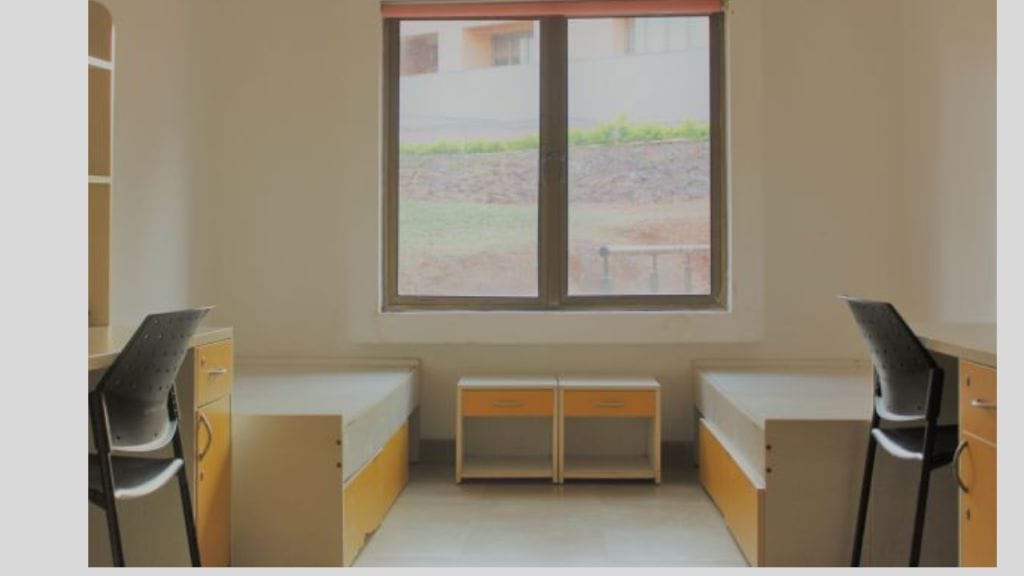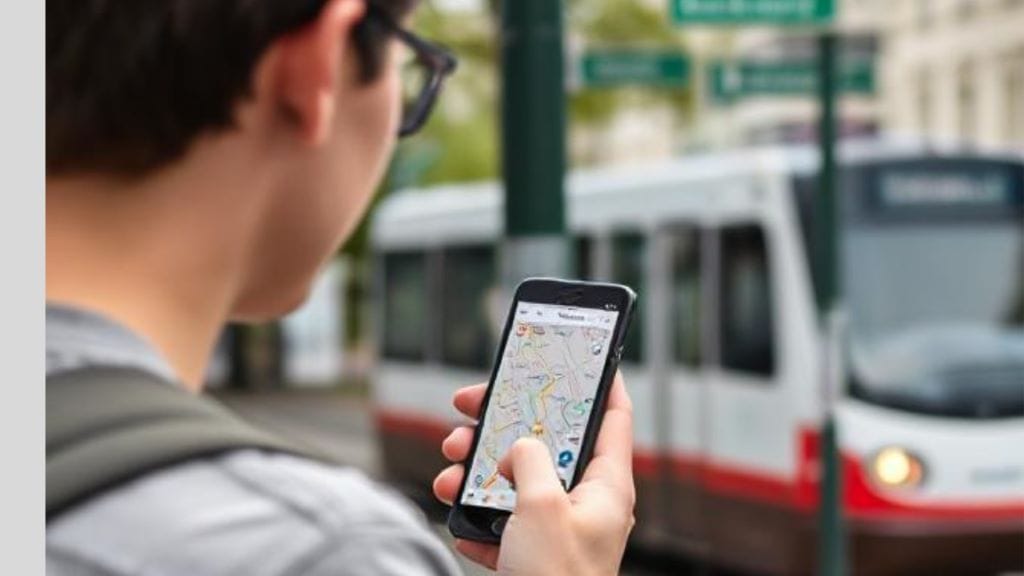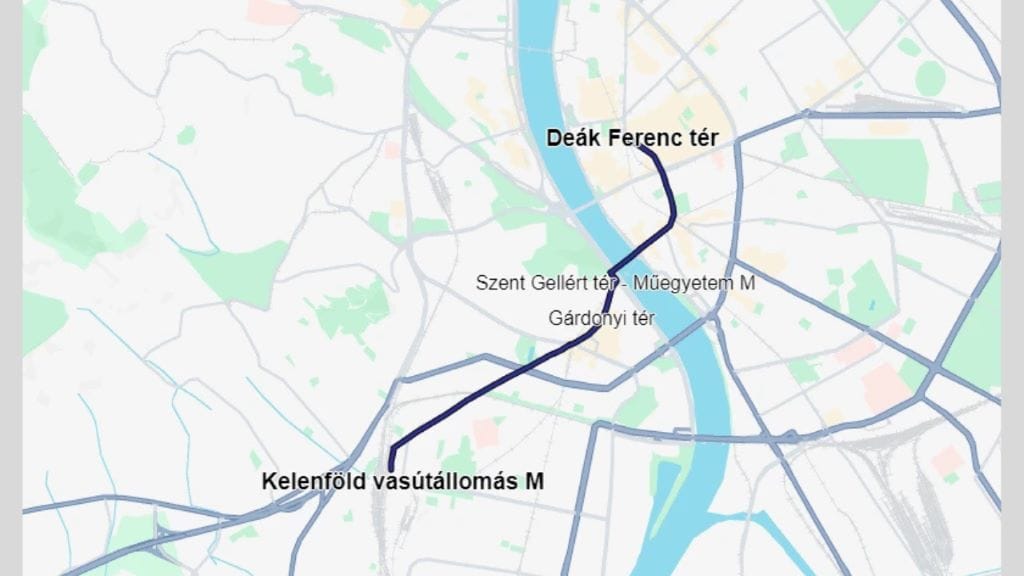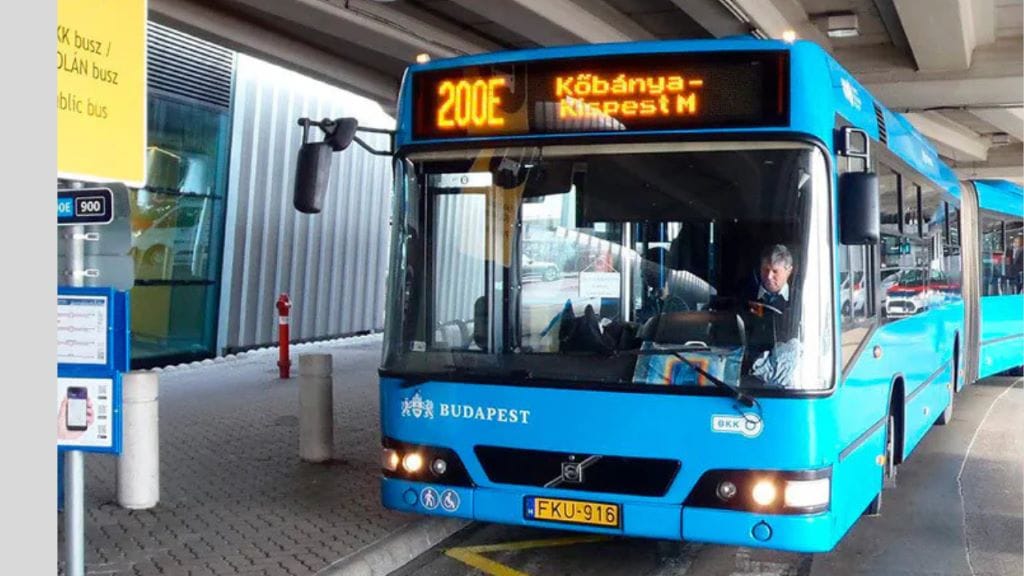Introduction
Moving to Hungary as an international student — especially on a scholarship like Stipendium Hungaricum — is an exciting adventure, but it can also feel overwhelming if you’re unprepared. When I first arrived in Hungary, I had little idea about the everyday things I needed to do — from opening a bank account to finding affordable accommodation. I wish someone had told me what to expect, especially as a student coming from a developing country with a limited budget.
That’s why I created this guide — to share everything I’ve learned the hard way, so you don’t have to.
Whether you’re about to catch your flight or still gathering information, this article will walk you through the top 6 essential things every international student should do before arriving in Hungary, especially if you’re trying to save money and avoid stress. These practical tips are based on real-life experience and are tailored for students like you — navigating a new country, new culture, and new challenges.
So, let’s dive right in and make your transition to student life in Hungary a smooth one!
1. Open an International Online Bank Account Before Arriving in Hungary

One of the first challenges I faced upon arriving in Hungary was exchanging money. I had brought some cash with me, but when I tried to exchange it at the airport, I received only 330 HUF for 1 USD — a noticeably poor rate compared to the 350 HUF per dollar I saw in the city just a few hours later. That difference might seem small, but for students like us, every forint counts.
Whether it’s paying for a taxi, a bus ticket, or a bite to eat after landing, you’ll need some local currency (Hungarian Forint) right away. However, relying on airport exchange rates or international ATMs can cost you more than you realize. Many foreign cards (like Visa or Mastercard from your home country) come with hidden fees, poor exchange rates, or high withdrawal charges.
The Better Solution? Use an Online International Bank
Before you even leave your home country, set up an online international bank account that works well in Hungary. The two most popular and student-friendly options are that are mostly used by almost every international students are :
- Revolut
- Wise (formerly TransferWise)
These platforms offer:
- Free or low-fee currency exchange at market rates
- Virtual and physical debit cards
- Easy money transfers between countries
- Low-cost withdrawals from ATMs abroad
- Quick setup (often without paperwork delays)
Most international students in Hungary use either Revolut or Wise because they’re fast and cost-effective. With one of these accounts, you can load money in your home currency, convert it to Hungarian forint at competitive rates, and pay for most things directly using the card — no need for large amounts of cash.
Why This Matters — Especially If You Need a Job or Plan to Send Money Home
If you plan to start a part-time job early (as many students do due to financial constraints), you’ll need a bank account to receive your salary. Many Hungarian employers and student jobs can pay into Revolut or Wise accounts. Furthermore if you want to send money back home, these international banking systems are good options
Can You Open a Hungarian Bank Account as a Student?
Yes —you need to open Hungarian bank account for many reasons. You are going to receive your stipend through it and some part-time job require it. But it may take time. To open a local Hungarian bank account, you’ll usually need:
- A valid passport
- Your residence permit
- Proof of address in Hungary
- A certificate of student status (which you receive after university registration)
However, this process isn’t always instant. Sometimes, documents take days or even weeks to get finalized. That’s why having Revolut or Wise before you arrive makes a big difference — it fills the gap while you wait for your local documents.
My advise for you is , If it is functional in your country(sometimes does not work in some country) ,just Set up your Revolut or Wise account from home, before you leave your country. You’ll save on exchange fees, avoid unnecessary ATM charges, and have instant access to your money from day one in Hungary.
2. Arrange Your Accommodation Before Moving to Hungary
The other most important thing you should consider when coming to Hungary is accommodation. Frankly speaking, if you don’t secure a place to stay early, it can be really challenging. My friend and I personally faced this problem when we arrived in Hungary. And we are not alone — I’ve come across many students from different countries who had the same issue. If you don’t prepare your accommodation before you move, it can become a serious headache.
Accommodation is very important in Hungary. For example:
- Your tax number will be sent to your address
- You’ll need an address for registration
- If you want to work (e.g., for delivery services like Wolt) or many other student jobs you need to provide an address
So your address is needed everywhere, and it all starts with finding a place to live.
Sometimes, for the visa process, the university may give you a temporary dormitory reservation letter, which can help with your visa application — but that doesn’t always mean you’ll have a place to stay upon arrival. In reality, you need to arrange your own housing in advance, not only for administrative reasons but also to avoid extra costs, stress, or even homelessness.
Dormitory Is the Best Option (If You’re Lucky)

The best thing is if you can get a dormitory in your university. This is especially helpful when you first arrive, because:
- You don’t know the country well
- You don’t have all the necessary information
- Dorm staff can help guide you
So please check your university’s website early, talk to the dormitory coordinator or committee, and apply on time.
Dormitory application is sometimes tricky. For example when I applied for a dormitory of my university ,University of Debrecen, I was two minutes late to submit my detail after the application portal opened, and all the slots were already taken! You need to be prepared and follow all the dorm application guidelines exactly. Dormitory places are usually given to students on a first-come, first-served basis, and they fill up very quickly.
Later on, once you’re settled, you can move out of the dorm and find your own flat if you want.
Renting a Flat in Hungary: What You Should Know
If you don’t get a dorm, the next option is renting a flat. But renting in Hungary has its own rules:
- You usually have to pay three months’ worth of rent up front
- One month is the first rent
- The other two months are the security deposit
- The landlord keeps the deposit and deducts money if there is any damage when you leave
You can find flats online — especially through Facebook groups. Most landlords use agents who post the available flats. You can directly message them and set up a rental agreement.
If you have an online international bank account like I motioned at the beginning, you can pay them easily. But some agents still ask for cash, so be ready for that too.
Be Careful — Avoid Scams
Most registered legal agents are truly help you. They are trustable. Even if you pay them your money on the bank you can request to give you back. But Some people might pretend to be agents and ask for money before showing you anything — these could be scams. Be careful and ask other students before making any payments. Only deal with agents that other students have used before and trust.
When you do payment until you go in person and sign agreement for the rent , do give your money in cash. You will not have guarantee if you so. Once you go in person and sign agreement you can pay them in cash.
Join international student groups on Facebook or Telegram, and don’t be shy to ask for help — especially for:
- A temporary place to sleep on your first night
- Advice from experienced students
- Trusted agents or landlords
You can also contact the international student support team at your university — they’re really there to help.
If you manage to rent your dorm or flat before coming to Hungary, you will save yourself from a lot of stress, money loss, and confusion. Trust me — this one step makes everything easier. So please, focus on securing your accommodation early.
3. Learn How to Use Google Maps — It Works Like Magic in Hungary!

One of the most interesting things you’ll enjoy in Hungary is how easy it is to get around using Google Maps — you can literally go anywhere without asking anyone. And to your surprise, Google Maps in Hungary is almost perfect. It gives exact directions, bus and train schedules, even pictures of the buildings.
When I first arrived in Hungary, I didn’t ask anyone for help. I just opened Google Maps and found my way to the university’s International Office. Google Maps took me directly to the main building, no confusion at all.
In Hungary, Google Maps is everything. People use it daily — to go to class, work, job interviews, or even food delivery. Everyone just shares Google Maps links instead of giving long directions.
You can even:
- See pictures of the building or house before arriving
- Know which bus or train to take, which station to go to, and the exact departure and arrival time
- Find out what time supermarkets or shops open and close
- Check walking, cycling, or transit routes
So I really recommend that you learn how to use Google Maps before coming.
Use Offline Maps If You Don’t Have Internet Right Away
When you first arrive in Hungary, especially before you buy a SIM card, you may not have internet. But don’t worry — Google Maps has a solution:
- Just download an offline map of the city you’re going to (for example, from the airport to your university city)
- That way, you can still use navigation without internet
This is very helpful on Day 1 — it saved me!
Get a SIM Card Early to Make Everything Easier
Of course, once you’re in Hungary, it’s better to get a SIM card quickly. That way, you’ll have:
- Internet on the go
- Access to real-time navigation
- Easier communication with others
To get a SIM card in Hungary, you’ll need some documents — usually:
- Your passport
- Your visa or residence permit
You can get a SIM card on your first day, even at the airport or in city shops. There are popular telecom providers like:
- Yettel
- Telekom
- Vodafone
You don’t need too many documents to get started — just your passport is usually enough.
Before arriving in Hungary, familiarize yourself with how Google Maps works. Learn how to:
- Search for places
- Choose walking or transit routes
- Download offline maps
- Pin important locations like your university, embassy, dorm, etc.
It will save you a lot of time, stress, and money — especially during your first week.
4. Know the Route to Your University — Don’t Get Lost or Overcharged!

Another very important thing to know when coming to Hungary is the route to your university — especially if you’re on a tight budget.
Once you land at the airport, you’ll need to travel from Budapest to the city where your university is located. Sometimes you might stay in Budapest overnight, or you might need to go directly to your university city.
Let me give you a real example.
My friend arrived in Hungary before me. Unfortunately, when he got there, he couldn’t find anyone to show him the directions. He ended up taking a taxi, and also had to stay overnight in a hotel.
In total, he spent more than $100 just for a taxi and one night of accommodation. That’s a lot of money — especially for someone like me who was traveling on a tight budget.
But luckily, since he went before me, I learned from his experience and did things differently. I planned my route in advance, saved money, and got to my university without any trouble. I spent less than 25$ .
Plan Ahead — Know the Cheapest and Easiest Way to Get to Your University
If you take a taxi from the airport, it might cost you a lot. But there are cheaper public options you can use if you prepare in advance.
Two Main Buses from Budapest Airport:
- 100E Airport Express
- Fast and direct
- Costs around 2200 HUF
- Goes to Deák Ferenc tér (center of Budapest)
- Requires a separate premium ticket
- 200E Bus (Cheaper Option)
- This one is public bus to and from air port
- Costs 450–650 HUF
- You can buy tickets from vending machines or airport kiosks
- Connects to railway stations and metro lines
- Best option if you’re heading to eastern cities like Cegléd, Szolnok, Debrecen, Nyíregyháza, etc.
From 200E, You Can:

- Get off at Ferihegy Rail Station
→ Take a direct train to your destination city - Or get off at Kőbánya-Kispest
→ Connect to Metro M3
→ Ride to Nyugati Station (a major railway station of budapest)
→ From Nyugati, travel to many other parts of Hungary - Or go to Keleti Station (Keleti Pályaudvar) if your train departs from there
→ Use Google Maps to check your best route
Pro Tips for Saving Money & Time:
- Avoid taxis or airport shuttles if you’re on a budget — they’re expensive
- Contact your friends in Hungary before you arrive — they can help guide you or even come pick you up
- Familiarize yourself with the route using Google Maps (you can download an offline map)
- Buy train or bus tickets at the station or online in advance, depending on your arrival time
- Most importantly: don’t wait until you land to figure it out — prepare before you fly
In a nutshell If you’re coming to Hungary on a tight budget like me, please know your route in advance.
It’s one of the most helpful things you can do to save money, reduce stress, and start your student journey smoothly.
5. Have Your Translator With You — Communication is Key 🇭🇺
When you arrive in Hungary, you’ll quickly realize one thing: Hungarians are kind and willing to help you — especially if you ask them politely.
They’ll show you the right direction, help you buy tickets from vending machines, and even guide you at metro or train stations. But there’s one catch:
Not everyone speaks English fluently.
That’s why you need to have a good translator app with you — especially one that works offline.
Google Translate is Your Best Friend

Personally, I use Google Translate most of the time. You can download the offline Hungarian language pack and translate between Hungarian and English (or your local language). It works anywhere — whether you’re in a supermarket, bus station, or talking to someone on the street.
With your translator app, you can:
- Ask for directions politely
- Understand street signs, menus, or transport apps
- Talk to locals if you’re stuck or confused
- Learn and use basic Hungarian phrases
Some Useful Hungarian Phrases to Learn:
- Köszönöm – Thank you
- Szia – Hi / Bye
- Bocsánat – Excuse me / Sorry
- Beszél angolul? – Do you speak English?
If you use these words politely, Hungarians will usually respond kindly and try their best to help. Many will go out of their way to show you the direction or guide you on what to do.
Other Helpful Translator Tips:
- You can also try other translator apps if you prefer, like iTranslate, SayHi, or Microsoft Translator
- Use the camera feature in Google Translate to instantly translate signs, documents, or menus
- If you meet international students from other countries, they might speak English, and you can help each other out
Join Online Student Communities
Another very helpful thing is to join online groups and student support communities before and after arriving in Hungary. These include:
- International student groups on Facebook, WhatsApp, and Telegram
- University-based student groups, including mentor programs and Stipendium Hungaricum student groups
- Old and new students in these groups can give you real advice, directions, and help in your local language or English
Summary
To sum up having a translator app (especially offline Google Translate) is not optional — it’s essential. It will make your first days in Hungary much easier, help you connect with others, and give you the confidence to move around, ask questions, and feel safe.
Start using your translator app before you land, and don’t hesitate to ask people for help — just be polite, respectful, and open.
In summary, these tips are extremely important for anyone preparing to study in Hungary. Taking them seriously can save you time, money, and unnecessary stress. Before arriving, make sure to join online communities and student groups — especially those related to your university. These include official student support networks, international student mentor programs, and scholarship groups like Stipendium Hungaricum communities.
Many experienced students are active in these spaces and are ready to help newcomers with everything from travel guidance to campus life tips. Connecting with these groups early will give you a strong support system, help you settle in smoothly, and make your transition to life in Hungary much easier.


One Comment
Comments are closed.